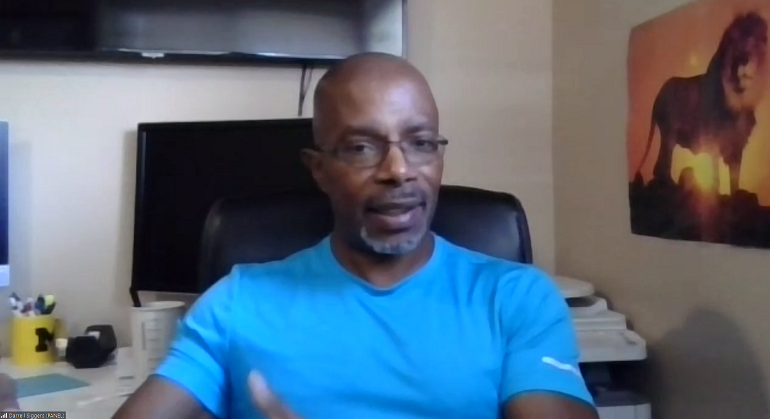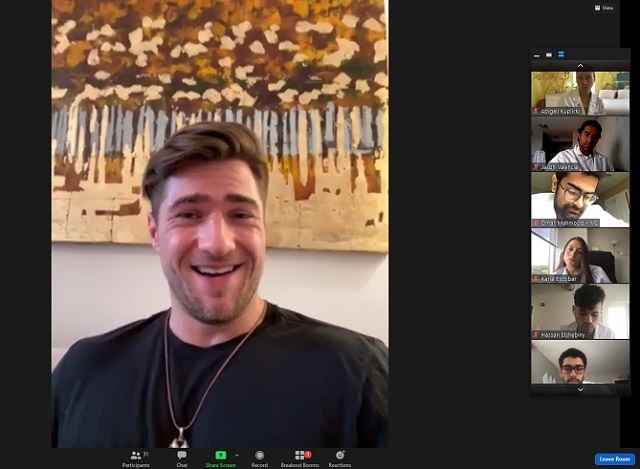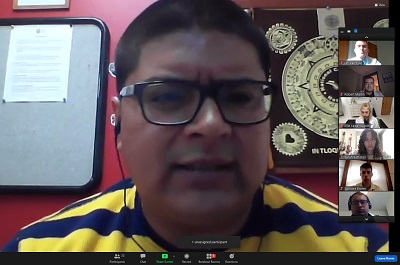
Wayne State University’s physicians-in-training met with a panel of formerly incarcerated citizens to showcase the health disparities and mental and physical health challenges this unique population faces once they return to society.
Darryl Siggers spent 34 years in prison, starting in 1984. He was released in 2018 after he was found to be wrongfully convicted. His case was dismissed.
“I grew to be a man in prison. I learned who I was, and my capabilities and the power of education. I lived in the law library,” he said.
He encouraged the students to look at each patient individually. “One size doesn’t fit all. You’ve got to take these cases individually and work them out the best you can, so you can best diagnose and treat them.”
A total of 283 medical students from the Class of 2024 met with Siggers and seven other returning citizens for three hours virtually Sept. 9, utilizing Zoom to break into smaller learning groups.
The event was the finale of the Correctional Health Unit within the School of Medicine’s Population, Patient, Physician and Professionalism Course directed by Associate Professor of Pediatrics Nakia Allen, M.D.
Four Class of 2022 students also served as small-group facilitators, along with six faculty members representing the departments of Psychiatry and Behavioral Neurosciences, Pediatrics, Dermatology, Internal Medicine’s Division of Rheumatology, Internal Medicine-Pediatrics, and the School of Medicine’s Office of Assessment, Accreditation and Continuous Quality Improvement.

Wayne State partnered with the Michigan Department of Corrections in 2018 to oversee the health care of inmates in the state’s prisons.
Returning citizen Charles Green, released last December, completed 20 months of incarceration for distributing cannabis.
“The reason that I do things like this is one of the most important things that people can do is to destigmatize the experience and normalize it. I try to put in the work. I think that it is very important in the medical field to have a broad perspective of various groups,” he said.
Eladio Nino spent 17 years incarcerated, where he served for a time as a prisoner observation aide. His job was “sit there and monitor all the guys on suicide watch,” he said. “My job was to help anybody and everybody. I felt like that was part of my purpose, part of my mission. A lot of them were mentally compressed through the environment, being in prison. They just don’t want to deal with the reality. Be patient and open-minded.”
He now works as a youth mentor for Detroit Hispanic Development Corp.
The unit began in August with a lecture given by WSU Law School Professor Lance Gable, J.D., M.P.H., and Associate Professor Heather Walter-McCabe, J.D., M.S.W., on the history of mass incarceration and the overrepresentation of people of color and the LGBTQ+ population in the correctional system.
“It was helpful to have Mr. Gable's public health and Ms. Walter-McCabe's social work perspective to contribute to their legal perspective,” Dr. Allen said.
Students then researched the disparities in health care as experienced by youth – known as the preschool-to prison-pipeline – as well as women who have children, LGBTQ+, and those living with mental illness. Students were responsible for identifying the prevailing health disparities experienced by these populations, common biases that people display toward individuals in these populations and the policies/community resources designed to ameliorate the disparities.
The final session included students speaking with returning citizens and community organizations designed to help them, including Central Cities Integrated Health, Nation Outside, Recovery Park, Michigan Department of Corrections Chief Medical Officer and WSU Professor of Psychiatry and Behavioral Neurosciences Carmen McIntyre, M.D., and Legal Access Plus.

The panelists shared their stories and experiences through a series of questions asked by the students and moderators. Some also discussed the barriers and challenges they faced or continue to face in reintegrating into civilian life, work and school.
Nino stressed the importance of mental health. “A lot of people live in their heads and they destroy themselves. It’s important for us as humans, and doctors, to not be biased and not stereotype people,” he said. “Find out what they’ve been through, try to strike up some type of common interest, and then try to include family and where this person’s support system is. You got to know how to treat people who serve long term. They suffer from a different reality. Don’t be disappointed.”
Gloria Rooks was among the panelists representing community organizations that assist prisoners once they are released. She is a therapist and case manager at Central City Integrated Health in Detroit.
“It’s important for them, because a lot of our members, once they get mentally stable, they start to realize and accept the importance of physical health. It’s important for them to know that’s a part of their treatment as well. The whole person, the holistic approach to health care, is important for a person to truly move forward in the re-entering process,” she said. “When a person feels good mentally and physically, they have a better spirit of themselves. It’s important that individuals have hope.”